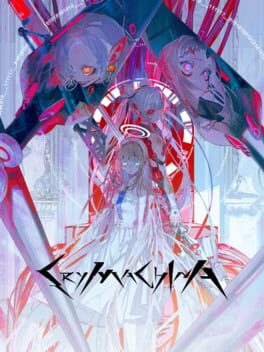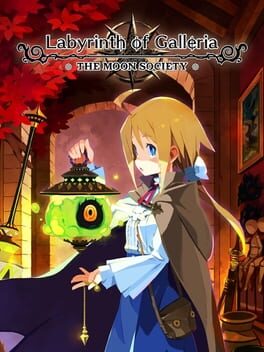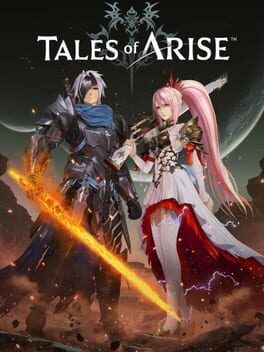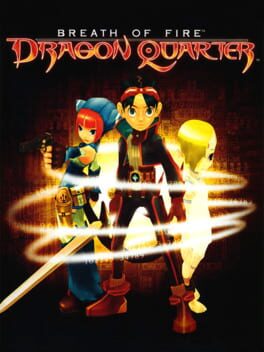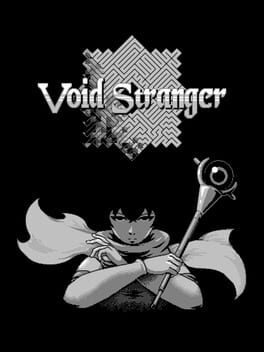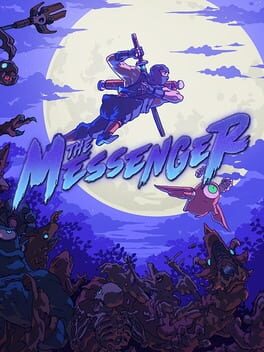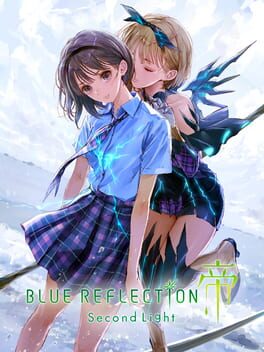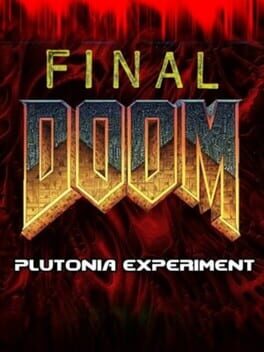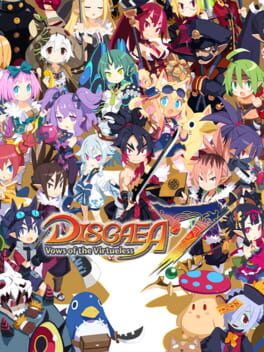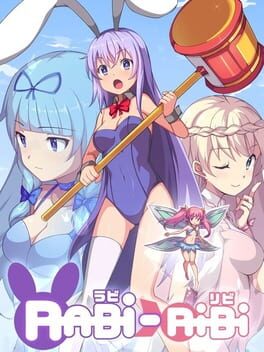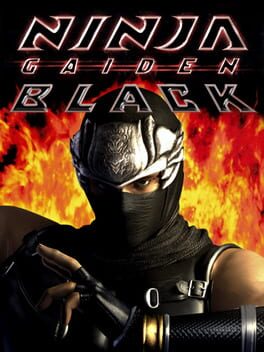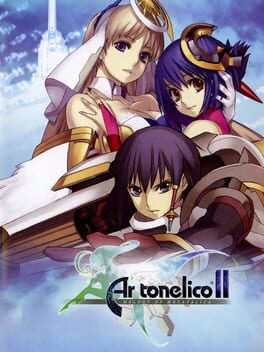moogy
2023
「やさしさで守れるあしたなんかどこにもない」
Anti-humanist yuri SF. All too often stories about sentient robots really only serve to stroke the ego of the humans creating and consuming them -- see the utterly abysmal anime Vivy for a great example of this -- but Crymachina is unwaveringly transgressive, reaching the conclusion that there is no inherent value in "humanity" and going on to posit that human society does not deserve to proliferate if that means trampling on intelligent beings it views as inferior.
As with Crystar, Crymachina's characters are concerned primarily with their own happiness, acting for the sake of the people they hold dear. And yes, the game is unabashedly queer, with characters driven not just by familial bonds but romantic love; indeed I am hard-pressed to think of another JRPG where love is such a strong motivating factor for the principal cast. Leben and Enoa struggle against the system not out of a sense of obligation or duty, but because of their desire for a life with one another, because their future together is being threatened. While the world of Crymachina is built on high-concept SF, taking enough cues from the novel The Three-Body Problem to warrant citing it in the end credits, its conflict remains raw, poignant, and grounded to a degree a great deal of media struggles to achieve.
Where I think the game will prove divisive is actually its runtime. Crymachina clocks in at only 15-20 hours of playtime, so it has to cover a lot of twists and turns fast. I can completely understand someone feeling as though the plot and characters don't have time to breathe, but I personally would argue that the script is tight enough that anything added to it could be nothing more than chaff. On Twitter I stated that it has "Blue Archive pacing," and I meant that in a complimentary sense. Certainly a YMMV aspect of the game, but it personally worked for me.
What I think most players will appreciate, though, is how abbreviated, even cursory, the actual gameplay is when compared to Crystar. You may have to grind a few times, but the stages are short and you are not forced to repeat content ad nauseam; I would estimate I spent only around 5 hours of my 16 hour playtime actually controlling characters. As such, while the game is much shorter than Crystar, I would not be surprised if it actually had more text...
And of course I would be remiss not to mention another one of the game's strong suits -- the audio. Personally I think Crymachina's soundtrack is sakuzyo's best work period, with much more varied compositions than Crystar. It helps that the music is used much better here than Crystar, with fewer and less repetitious music cues letting you appreciate the individual tracks more. As one might expect, the voice acting is also sublime, with Tohno Hikaru's performance as Enoa in particular lending the scenario some real emotional weight.
All in all Crymachina is a very different game from Crystar, but it pleasantly surprised me with its powerful script, acerbic critique of the ugly aspects of human society, and willingness to be fully-fledged romantic yuri in a space where few works meaningfully depict love at all. This is definitely my favorite Furyu game... make of that statement what you will, I suppose.
Anti-humanist yuri SF. All too often stories about sentient robots really only serve to stroke the ego of the humans creating and consuming them -- see the utterly abysmal anime Vivy for a great example of this -- but Crymachina is unwaveringly transgressive, reaching the conclusion that there is no inherent value in "humanity" and going on to posit that human society does not deserve to proliferate if that means trampling on intelligent beings it views as inferior.
As with Crystar, Crymachina's characters are concerned primarily with their own happiness, acting for the sake of the people they hold dear. And yes, the game is unabashedly queer, with characters driven not just by familial bonds but romantic love; indeed I am hard-pressed to think of another JRPG where love is such a strong motivating factor for the principal cast. Leben and Enoa struggle against the system not out of a sense of obligation or duty, but because of their desire for a life with one another, because their future together is being threatened. While the world of Crymachina is built on high-concept SF, taking enough cues from the novel The Three-Body Problem to warrant citing it in the end credits, its conflict remains raw, poignant, and grounded to a degree a great deal of media struggles to achieve.
Where I think the game will prove divisive is actually its runtime. Crymachina clocks in at only 15-20 hours of playtime, so it has to cover a lot of twists and turns fast. I can completely understand someone feeling as though the plot and characters don't have time to breathe, but I personally would argue that the script is tight enough that anything added to it could be nothing more than chaff. On Twitter I stated that it has "Blue Archive pacing," and I meant that in a complimentary sense. Certainly a YMMV aspect of the game, but it personally worked for me.
What I think most players will appreciate, though, is how abbreviated, even cursory, the actual gameplay is when compared to Crystar. You may have to grind a few times, but the stages are short and you are not forced to repeat content ad nauseam; I would estimate I spent only around 5 hours of my 16 hour playtime actually controlling characters. As such, while the game is much shorter than Crystar, I would not be surprised if it actually had more text...
And of course I would be remiss not to mention another one of the game's strong suits -- the audio. Personally I think Crymachina's soundtrack is sakuzyo's best work period, with much more varied compositions than Crystar. It helps that the music is used much better here than Crystar, with fewer and less repetitious music cues letting you appreciate the individual tracks more. As one might expect, the voice acting is also sublime, with Tohno Hikaru's performance as Enoa in particular lending the scenario some real emotional weight.
All in all Crymachina is a very different game from Crystar, but it pleasantly surprised me with its powerful script, acerbic critique of the ugly aspects of human society, and willingness to be fully-fledged romantic yuri in a space where few works meaningfully depict love at all. This is definitely my favorite Furyu game... make of that statement what you will, I suppose.
Galleria is a wildly ambitious game, with a story and setting far greater in scale than I could have ever imagined. It recalls titles like YU-NO and Xenogears; it is not afraid to be big, and it is not afraid to be surprising. If you're tired of games with predictable plots, games that advertise every last character and setpiece ahead of time, then look no further -- Galleria has the confidence not to show its cards, and more than enough twists and turns to keep you guessing where things will end up.
But it's easy to squander a plot, because a plot is nothing without its characters. Frankly, I was not on board with the previous games in the Majo series (Hyakkihei and Refrain), largely because the protagonists were, in a word, unlikable. I wasn't invested in the characters, and so I was not invested in the world they inhabited. Thankfully, this shortcoming has been more than just addressed in Galleria; its two protagonists are wonderfully endearing characters, and the strength of their characterization is the narrative's greatest asset. No matter how elaborate the setting gets, no matter how many characters are introduced, it all revolves around Eureka and Natyl in the end. Their relationship provides an emotional core that the previous games in the series lacked. Without them, it wouldn't be half the game it is.
It's fortunate that Galleria has this driving force in the form of Eureka and Natyl, because it is (perhaps unsurprisingly) an absolutely massive game, requiring a great deal of patience and perseverance from the player if they wish to see it through to the end. I can't really imagine anyone finishing it in less than 90 hours. Mechanically, and in terms of dungeon design, I found it to be a huge step up from Refrain. At the same time. there are many parts of the game I can see people finding tedious, if not outright repellent, namely the randomly generated dungeons in the latter half and the item farming and level grinding required for the final boss. And of course, no discussion of Galleria is complete without mentioning its final challenge: a 3651 (not a typo) floor dungeon, entirely randomly generated and designed to test just how far the player is willing to go to see the true ending of the game. I found it to be a fascinating challenge -- it basically creates a roguelike by bending the game's existing mechanics -- and deeply rewarding to complete, not the least of which because of just how brilliant the ending sequence is, but the fact remains that it's a very tall ask.
I don't think Galleria is perfect, either as a narrative or as a game. There are topics I wish the writing had explored more deeply, characters I wish had gotten more screentime (or more comeuppance). I found myself genuinely frustrated by the stupidly difficult final boss, especially after what I had to do to even be able to fight it properly. The postgame dungeon really made me feel like giving up at times, especially when I managed to lose several hundred (!) floors' worth of progress. But in the end, it was all worth it. I can't remember the last time I felt so satisfied completing a game. My complaints all melted away as I watched the hour-long ending sequence go by. In the end, I just loved Eureka and Natyl that much, I guess. I couldn't help but love their game too.
Galleria is one of the greatest JRPGs of all time, and Nippon Ichi's greatest achievement as a company. And that's coming from someone who didn't even like the previous games in the series very much.
But it's easy to squander a plot, because a plot is nothing without its characters. Frankly, I was not on board with the previous games in the Majo series (Hyakkihei and Refrain), largely because the protagonists were, in a word, unlikable. I wasn't invested in the characters, and so I was not invested in the world they inhabited. Thankfully, this shortcoming has been more than just addressed in Galleria; its two protagonists are wonderfully endearing characters, and the strength of their characterization is the narrative's greatest asset. No matter how elaborate the setting gets, no matter how many characters are introduced, it all revolves around Eureka and Natyl in the end. Their relationship provides an emotional core that the previous games in the series lacked. Without them, it wouldn't be half the game it is.
It's fortunate that Galleria has this driving force in the form of Eureka and Natyl, because it is (perhaps unsurprisingly) an absolutely massive game, requiring a great deal of patience and perseverance from the player if they wish to see it through to the end. I can't really imagine anyone finishing it in less than 90 hours. Mechanically, and in terms of dungeon design, I found it to be a huge step up from Refrain. At the same time. there are many parts of the game I can see people finding tedious, if not outright repellent, namely the randomly generated dungeons in the latter half and the item farming and level grinding required for the final boss. And of course, no discussion of Galleria is complete without mentioning its final challenge: a 3651 (not a typo) floor dungeon, entirely randomly generated and designed to test just how far the player is willing to go to see the true ending of the game. I found it to be a fascinating challenge -- it basically creates a roguelike by bending the game's existing mechanics -- and deeply rewarding to complete, not the least of which because of just how brilliant the ending sequence is, but the fact remains that it's a very tall ask.
I don't think Galleria is perfect, either as a narrative or as a game. There are topics I wish the writing had explored more deeply, characters I wish had gotten more screentime (or more comeuppance). I found myself genuinely frustrated by the stupidly difficult final boss, especially after what I had to do to even be able to fight it properly. The postgame dungeon really made me feel like giving up at times, especially when I managed to lose several hundred (!) floors' worth of progress. But in the end, it was all worth it. I can't remember the last time I felt so satisfied completing a game. My complaints all melted away as I watched the hour-long ending sequence go by. In the end, I just loved Eureka and Natyl that much, I guess. I couldn't help but love their game too.
Galleria is one of the greatest JRPGs of all time, and Nippon Ichi's greatest achievement as a company. And that's coming from someone who didn't even like the previous games in the series very much.
2021
2022
What is it like to live a fairy tale?
I posit that the Souls series has been attempting to answer this question since its inception, and with Elden Ring, From has finally succeeding in realizing a world that was able to do so.
Your only goal in Elden Ring is to effect an upheaval, to dismantle the current system that you may bring about a new beginning -- or simply an ending. You forge your own myth as you venture through the dying, stagnant world of the Lands Between, bringing hope and despair to its denizens. Around every turn are wonders and horrors; the world is a sick one, but it is a beautiful sickness. Regardless of the ending you choose, there is a true sense that you have accomplished something epic by the end of it all, epic in the most classical sense of the word.
While you can argue that this approach is no different from the Souls games which provide the foundation for Elden Ring, it really "clicked" for me here in a way it didn't in previous games. I attribute this largely to the sheer scale of Elden Ring's world. Miyazaki describes ER as a game based on a mythology by GRRM, and if you ask me, the world lives up to the mythology that shaped it.
Truly a monumental experience; this is what games are capable of. I don't regret completely destroying my sleep schedule to play it for 10+ hours a day at release lol.
I posit that the Souls series has been attempting to answer this question since its inception, and with Elden Ring, From has finally succeeding in realizing a world that was able to do so.
Your only goal in Elden Ring is to effect an upheaval, to dismantle the current system that you may bring about a new beginning -- or simply an ending. You forge your own myth as you venture through the dying, stagnant world of the Lands Between, bringing hope and despair to its denizens. Around every turn are wonders and horrors; the world is a sick one, but it is a beautiful sickness. Regardless of the ending you choose, there is a true sense that you have accomplished something epic by the end of it all, epic in the most classical sense of the word.
While you can argue that this approach is no different from the Souls games which provide the foundation for Elden Ring, it really "clicked" for me here in a way it didn't in previous games. I attribute this largely to the sheer scale of Elden Ring's world. Miyazaki describes ER as a game based on a mythology by GRRM, and if you ask me, the world lives up to the mythology that shaped it.
Truly a monumental experience; this is what games are capable of. I don't regret completely destroying my sleep schedule to play it for 10+ hours a day at release lol.
2023
Never before have I cared about a puzzle game, but Void Stranger had that special something to make it click for me. The story that unfolds over the first two "routes" is truly affecting, a beautiful tale of devotion spanning worlds that accomplishes so very much with so very little. You are only shown fragments, brief snippets of moments both pivotal and mundane, left to mull them over as you descend ever further into The Void, solving sokoban screen after sokoban screen. And somehow I cannot imagine a more effective means of conveying the story; sparse as the text may be, every word counts, and these routes achieve lofty emotional heights.
The subsequent routes are less inspired, veering into more well-trodden ground, but they too have moments of brilliance. Despite generally negative experience with the puzzle genre in the past, I found myself enraptured enough with Void Stranger to explore its every crevice and see all that it had to offer. That I found myself so engrossed with a game of a genre I previously had not cared for says to me that there is something noteworthy about Void Stranger, that it transcends the limits of its world. Any reservations I might have about it are surely trifling in the face of that understanding.
As an aside, many elements of Void Stranger's narrative are quite similar to Labyrinth of Galleria; I can recommend VS to fans of Galleria, and vice versa.
The subsequent routes are less inspired, veering into more well-trodden ground, but they too have moments of brilliance. Despite generally negative experience with the puzzle genre in the past, I found myself enraptured enough with Void Stranger to explore its every crevice and see all that it had to offer. That I found myself so engrossed with a game of a genre I previously had not cared for says to me that there is something noteworthy about Void Stranger, that it transcends the limits of its world. Any reservations I might have about it are surely trifling in the face of that understanding.
As an aside, many elements of Void Stranger's narrative are quite similar to Labyrinth of Galleria; I can recommend VS to fans of Galleria, and vice versa.
2018
This review contains spoilers
Gust's most polished game of all time. Quite possibly the best soundtrack of the HD era of gaming. Genuine humor and pathos with an endearing cast. An explicit lesbian couple whose love is celebrated by the narrative.
I don't think BR Tie is perfect but or even necessarily that novel (outside of Yuuki and Rena's relationship, which is wonderful to see in a JRPG), but I'm giving it a score this high anyway because of what it represents to me. It makes me feel rewarded for supporting Gust for the past 16 years (a little more than half my life), ever since Atelier Iris was localized. I'm really glad they put so much love and care into this. Highly recommended for fans of Tsuchiya's games as well; he was the development producer and came up with the story, so it shares many thematic elements and storytelling devices with the EXA_PICO series.
Strong recommendation to watch the Blue Reflection Ray before playing. Weaker recommendation to play Ar Nosurge beforehand (it's probably the most similar game Gust has made, though maybe not in ways you're expecting). The first BR game is pretty skippable honestly.
I don't think BR Tie is perfect but or even necessarily that novel (outside of Yuuki and Rena's relationship, which is wonderful to see in a JRPG), but I'm giving it a score this high anyway because of what it represents to me. It makes me feel rewarded for supporting Gust for the past 16 years (a little more than half my life), ever since Atelier Iris was localized. I'm really glad they put so much love and care into this. Highly recommended for fans of Tsuchiya's games as well; he was the development producer and came up with the story, so it shares many thematic elements and storytelling devices with the EXA_PICO series.
Strong recommendation to watch the Blue Reflection Ray before playing. Weaker recommendation to play Ar Nosurge beforehand (it's probably the most similar game Gust has made, though maybe not in ways you're expecting). The first BR game is pretty skippable honestly.
Played on UV, pistol starting every map. All maps played to completion, including the secret ones. Mid-map saves weren't used anywhere except for the ending of map 09 and the Icon of Sin fight. The former because it's really hard, the latter because the Icon of Sin is lame and I wanted to finish the game already.
Source port used was dsda-doom, primarily because it has proper borderless fullscreen support.
Playtime was around 32 hours in total, roughly an hour per map on average. The longest I spent on a single map was ~4-5 hours for Speed (map 12).
As someone first playing Doom in the 2020s, Plutonia was the game that truly taught me the potential of Doom, what makes it so fascinating to this day.
What I find striking about classic Doom is the wide range of skills it tests. You need to be able to grasp geometry layouts and enemy positions in a (pseudo) 3D space. You need a basic understanding of routing concepts like resource management and threat mitigation. Aiming and movement are demanding on a basic mechanical level. Individual combat encounters demand swift reflexes and a sense of rhythm. Level design is freeform enough that you may need to navigate gargantuan mazes. Sometimes there's even platforming! Doom blends many disparate design elements―that is, sources of difficulty―to create a distinct experience with seemingly limitless depth. Plutonia conveyed this to me better than the original games ever did.
Why? Simply put, Plutonia is both bolder and more refined than the originals. This is not to discredit id's accomplishment with the originals, of course―while the map design is very rough in those games, we wouldn't have Doom period without them, and the Casali brothers needed the foundation they provided to build Plutonia upon.
Either way, the Casali brothers succeeded in pushing the envelope, in taking Doom to greater heights. While not every level in Plutonia is as tight as it could be (it was made by two people in four months, after all), its design is, in a word, purposeful. The Casali brothers weren't figuring things out as they went along; they knew what they wanted to do, and that was challenge the player in novel and exciting ways. This is most apparent with the enemy placement and encounter design. There are no "tiers" of monsters―no fodder, no midbosses, no bosses, just threats to be placed in ways that complicate and enhance the level elements surrounding them. Why are there so many chaingunners? Because they force you to respect them, which in turn forces you to approach the surrounding design with more care. You will be put under pressure and taken out of your comfort zone, be it by chaingunners or revenants or archviles or even cyberdemons, but that's a good thing. Victory tastes so much sweeter when you've worked for it.
I was also generally impressed by the basic level layouts in Plutonia. They're well-paced and suitably intense throughout; even the larger levels never feel sprawling. The de facto finale, Odyssey of Noises, is an obvious standout in the level design department, with its inspired theming and complex, multi-layered pathing. It's so good that I have to question why there's not more discussion of this level in mainstream gaming spaces, especially given that it's featured in a commercial release from id. It'd certainly be more interesting than yet another opinion piece breathlessly proclaiming the inimitable genius of the interlocking world in Dark Souls. I don't see people lavishing the same praise on Super Metroid for leading you back into Crateria via red Brinstar... But I digress.
All in all, Plutonia is proof that sometimes just wanting to make something hard is the right mindset. In their pursuit of new challenges, the Casali brothers redefined what Doom could be and inspired generations of mappers to come.
Plutonia (at least under the conditions I played it with) was significantly harder than any Doom content I had played prior, and I really felt like I was in over my head at first. Around Go 2 It, though, things clicked for me, and I began to develop an appreciation for the torment. It was worth persevering through all the pain; initially, I wasn't sure if I'd move on to fanmade Doom WADs, but the idea is starting to seem very appealing...
Source port used was dsda-doom, primarily because it has proper borderless fullscreen support.
Playtime was around 32 hours in total, roughly an hour per map on average. The longest I spent on a single map was ~4-5 hours for Speed (map 12).
As someone first playing Doom in the 2020s, Plutonia was the game that truly taught me the potential of Doom, what makes it so fascinating to this day.
What I find striking about classic Doom is the wide range of skills it tests. You need to be able to grasp geometry layouts and enemy positions in a (pseudo) 3D space. You need a basic understanding of routing concepts like resource management and threat mitigation. Aiming and movement are demanding on a basic mechanical level. Individual combat encounters demand swift reflexes and a sense of rhythm. Level design is freeform enough that you may need to navigate gargantuan mazes. Sometimes there's even platforming! Doom blends many disparate design elements―that is, sources of difficulty―to create a distinct experience with seemingly limitless depth. Plutonia conveyed this to me better than the original games ever did.
Why? Simply put, Plutonia is both bolder and more refined than the originals. This is not to discredit id's accomplishment with the originals, of course―while the map design is very rough in those games, we wouldn't have Doom period without them, and the Casali brothers needed the foundation they provided to build Plutonia upon.
Either way, the Casali brothers succeeded in pushing the envelope, in taking Doom to greater heights. While not every level in Plutonia is as tight as it could be (it was made by two people in four months, after all), its design is, in a word, purposeful. The Casali brothers weren't figuring things out as they went along; they knew what they wanted to do, and that was challenge the player in novel and exciting ways. This is most apparent with the enemy placement and encounter design. There are no "tiers" of monsters―no fodder, no midbosses, no bosses, just threats to be placed in ways that complicate and enhance the level elements surrounding them. Why are there so many chaingunners? Because they force you to respect them, which in turn forces you to approach the surrounding design with more care. You will be put under pressure and taken out of your comfort zone, be it by chaingunners or revenants or archviles or even cyberdemons, but that's a good thing. Victory tastes so much sweeter when you've worked for it.
I was also generally impressed by the basic level layouts in Plutonia. They're well-paced and suitably intense throughout; even the larger levels never feel sprawling. The de facto finale, Odyssey of Noises, is an obvious standout in the level design department, with its inspired theming and complex, multi-layered pathing. It's so good that I have to question why there's not more discussion of this level in mainstream gaming spaces, especially given that it's featured in a commercial release from id. It'd certainly be more interesting than yet another opinion piece breathlessly proclaiming the inimitable genius of the interlocking world in Dark Souls. I don't see people lavishing the same praise on Super Metroid for leading you back into Crateria via red Brinstar... But I digress.
All in all, Plutonia is proof that sometimes just wanting to make something hard is the right mindset. In their pursuit of new challenges, the Casali brothers redefined what Doom could be and inspired generations of mappers to come.
Plutonia (at least under the conditions I played it with) was significantly harder than any Doom content I had played prior, and I really felt like I was in over my head at first. Around Go 2 It, though, things clicked for me, and I began to develop an appreciation for the torment. It was worth persevering through all the pain; initially, I wasn't sure if I'd move on to fanmade Doom WADs, but the idea is starting to seem very appealing...
2016
1995
2005
2015
Bloodborne is many things, but to me it is primarily masterpiece of horror. This is what it means to be trapped in a nightmare; this is what it means to confront beings beyond one's comprehension. What more can I say? Bask in the madness.
That this is trapped on PS4 is utterly criminal. Sony needs to wake the fuck up and port/remaster this ASAP.
That this is trapped on PS4 is utterly criminal. Sony needs to wake the fuck up and port/remaster this ASAP.
